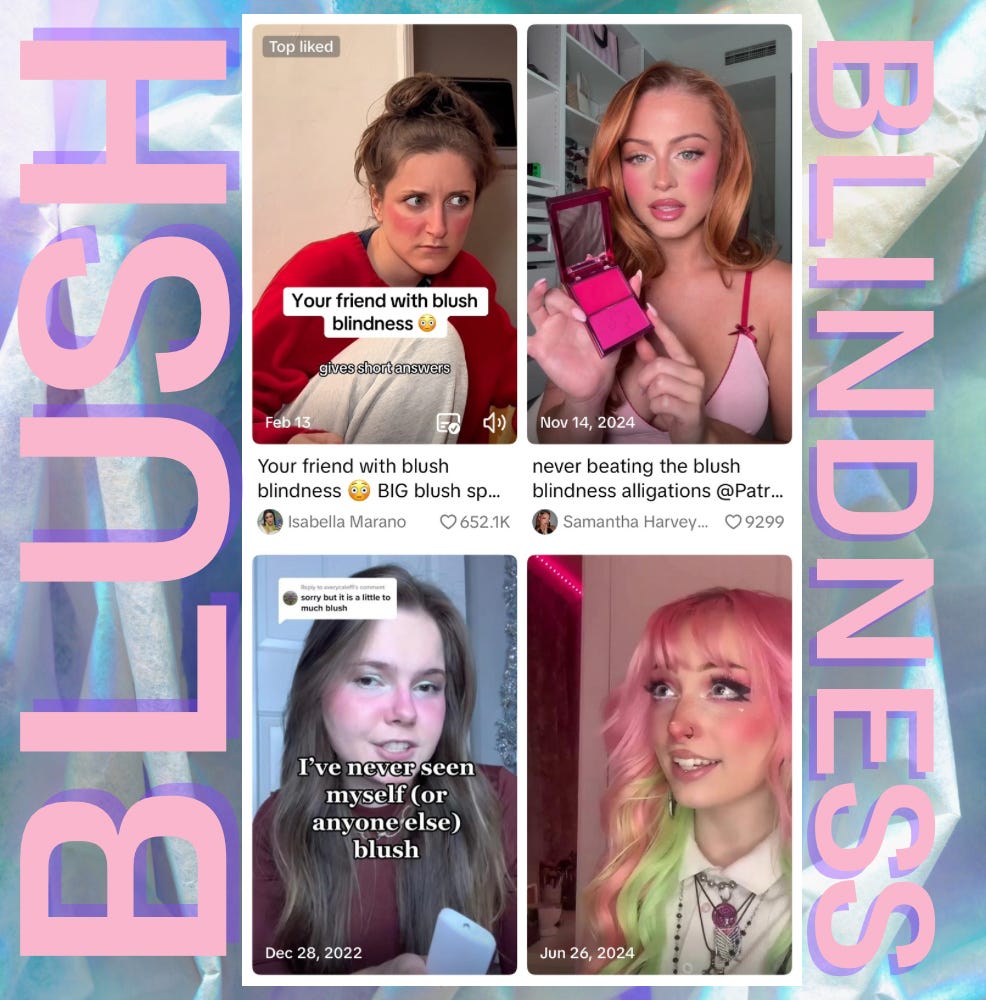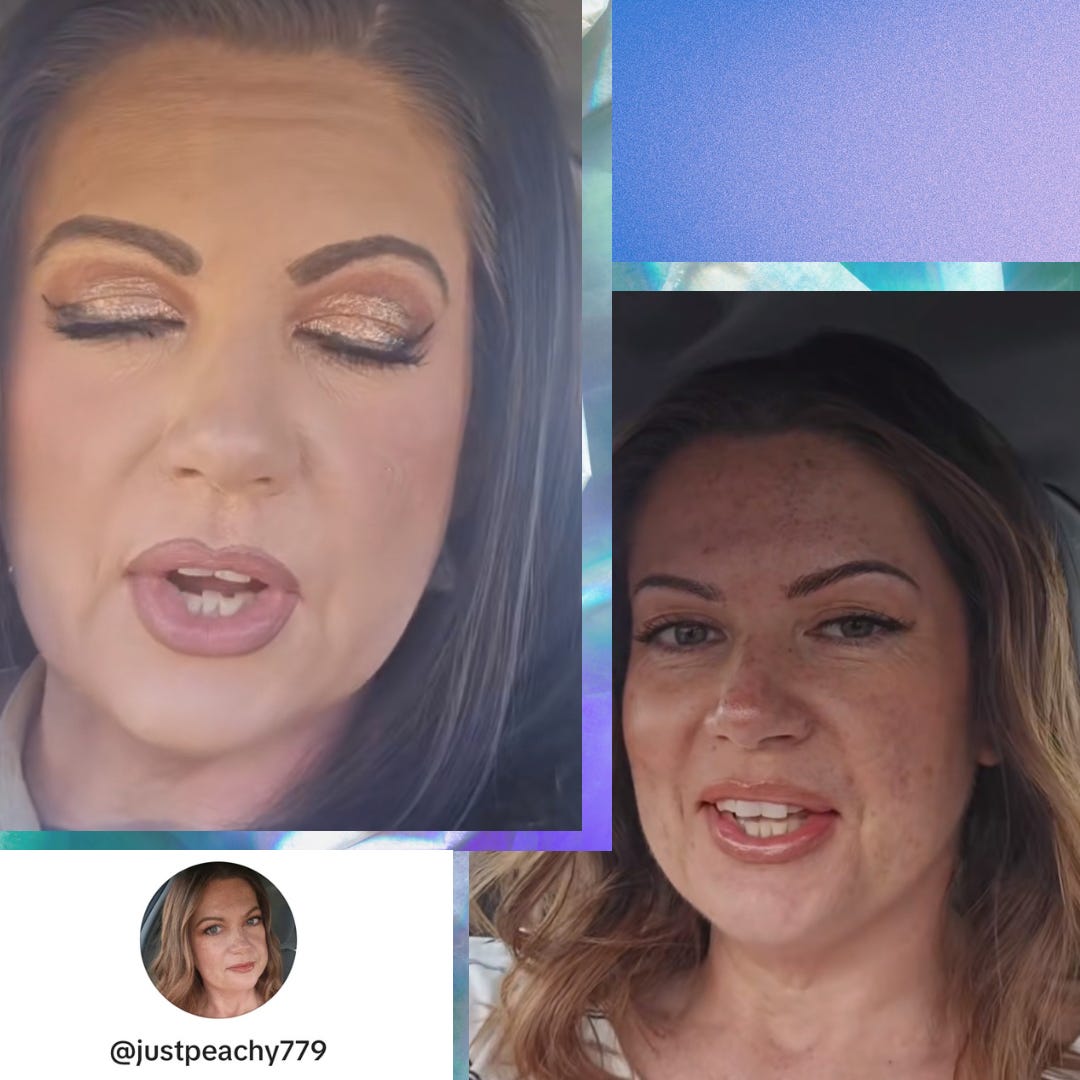There is a huge amount of random makeup nonsense online: random facts or techniques that don’t work, or tips that make absolutely zero sense, with just people telling you what to do when they don’t have much of a clue themselves. Don’t get me wrong, I’m the first person to disagree with the phrase “Makeup has no rules.” In fact, as a professional makeup artist, I’ve always found it kind of condescending in a funny, lighthearted way. Some of you may be familiar with my catchphrase: “Creativity and individuality have no rules, but makeup has a theory,” basically meaning, “Do whatever you want with your own makeup, but don’t disrespect a profession that takes time to learn—proper professional makeup artistry.” I always have to add this, just in case I offend anyone: nowadays, people know a lot more about makeup than they used to, so “makeup has rules” shouldn’t feel intimidating to anyone because, more than likely, you’re very aware of “the rules.”
But these “rules” change weekly on social media now, as we all know, and the latest “change this about your makeup” is something called “blush blindness.” This literally means you are wearing too much blush - perhaps it’s built up slowly over time, and you’ve become so used to the amount of blush you apply that you’re now “blind” to how much blush you’re wearing, and maybe you should dial it back a little. And this can be applied to every aspect of beauty: brow blindness, hair blindness, lip-line blindness. If someone tells you that you have any of these, they’re pretty much telling you they don’t like how this aspect of your face looks. Some people use it as an insult, some as constructive criticism, and some people even ask what blindness they have, looking for feedback.
If we cast our minds back just a few months ago, blush was THE thing to invest in. Cream blushes became more popular, and people were using blush again in general. I couldn’t imagine a full face of makeup without blush, but some people just weren’t interested in using it! Younger makeup enthusiasts were discovering the wonders of 80’s-esque blush positioning and how crazy it was that blush could make it look like you were, get this, naturally blushing!
So why is everyone now suddenly against using too much blush when, just a short time ago, they were telling you to wear more? Instead of trying to answer that question, let’s just focus on why it really doesn’t matter.
One thing I love to do is look back at the subtleties of how makeup styles have changed over time. What made 2000’s makeup different from the 2010’s? Or the 1920’s different from the 1930’s? The subtle differences in lip-line shape, brow shape, or what makes a blue an “80’s blue” compared to a “2000’s blue.” One thing I love about makeup is how it changes with our outlook on the world and the cultural situations of the time, without us even realizing it. After all, there are shades of red that only exist because of wars, a whole new product was invented because a celebrity caught a tan, and there are even brands “for men” because men and women couldn’t possibly use the same products!
We’ve all lived through some intense times, and our tastes and emotions have shown themselves throughout self-expression in the form of our hair, makeup, and clothes. Imagine teen me - black eyeliner smudged around my eyes, black eyelids, and a fringe that I was constantly swishing off my face as it hung over one eye. I was an emo at heart, even though my music taste at the time was Lil’ Kim and Missy Elliot. But the ‘emo look’ was what I resonated with.
Looking back now, would I ever do my makeup like I did back then? Unblended, uncared for, and just generally messy? No, but that was the style. Thinking back even eight years ago, are your brows the same? Is your hair the same color? Do you still wear the same shade of lipstick now as you did back then? Do you look back on these choices and cringe a little? Even if, at the time, it made sense and you felt incredible looking the way you did? At least we’ve had some time to recover from those moments.
But one thing, one huge thing, we all lived through was COVID, lockdown - however you refer to it now. And in the world of beauty, this was a huge game changer. It started the whole natural, no-makeup makeup trend that I despise so much for the beauty industry, but here’s why I bring this up. The current trend, although slowly changing, is minimal, natural-looking makeup. So, let’s be real - if you apply any blush with high pigment and haven’t carefully considered how the shade will sit with the rest of your makeup, anything could look “too much,” although “too much” is a personal preference.
If you were to add lipstick and maybe even a little color to your eyes, your blush blindness will be cured. It’s not that you’re wearing too much blush; it’s that you don’t have anything else on. Influencers can’t be out there on social media telling people to apply skin tint, tinted lip balm, and mascara as a “full glam,” then telling people they have blush blindness when they apply more than what is actually visible.
Maybe we can get some positives from this trend of calling people out on their “makeup blindness,” and that positive is the transformations I’ve seen online. People who bravely put themselves out there on video and say, “Tell me what my makeup blindness is,” promoting all kinds of responses about their brows, blush, lashes, and people even giving constructive criticism on their hair. And I have to admit, most of the comments aren’t overly rude or nasty; they seem to be giving genuine advice.
One individual who did this was a user on TikTok called @Justpeachy779. I believe it all started because someone got her age completely wrong, and she took to the internet to ask why people think that may have happened, and people gave their advice. I’ve never seen someone take advice and criticism about their looks in such an admirable way. But her content consists of her taking pieces of advice and putting them into action. Her transformation has been subtle but effective. It does show that we can get stuck in old habits and perhaps become immune to the ability to visually see when something we’re doing doesn’t benefit us. However, this specific example shows that everything we do in terms of makeup works better when it’s in harmony.
The fact is, “blush blindness” isn’t a mistake we’re making; it’s a confusion caused by quickly changing trends and this middle space we’re in, where too much makeup is kind of out of style, but people are also desperate to be more creative with their own makeup or even just apply a bit more. Brands are still trying to sell us “skincare-infused blush” while also competing for the best, most pigmented blush. Brands and content creators are feeding us a trend and products that don’t work hand-in-hand. “Blush blindness” isn’t a mistake; it’s a confusion.
If you care about being perceived as having blush blindness, then just make sure all your other makeup is as intense or formulated as your blush. Wear a bolder lip or darken your eyes. Or go over your blush with a light amount of foundation if you feel you applied too much.
But at the end of the day, who cares?
If you want some further entertainment on this topic, I’ve linked a video here that I filmed about “makeup blindness” -





i’ve been told by people that i have blush blindness. but the truth is, i know i wear a lot of blush, i just don’t care! i love the way it looks! it’s my face, why do people care so much ??!?
I do think it's interesting that people have opened themselves up to the sometimes overly harsh criticism of the internet and they've gotten genuine/helpful reactions. For as bad as it could be, it is nice to see people trying to be constructive rather than mocking or condescending.